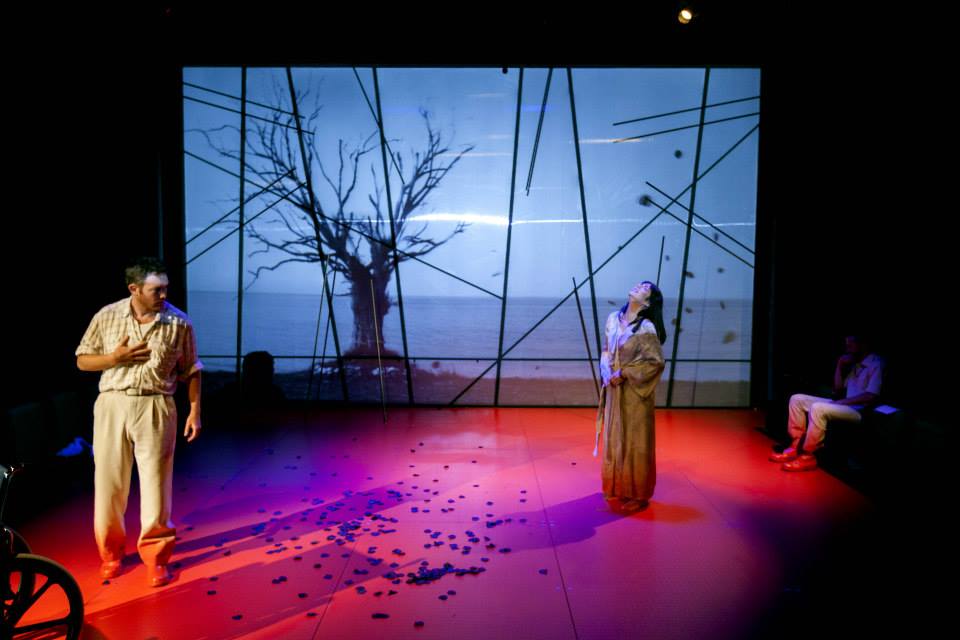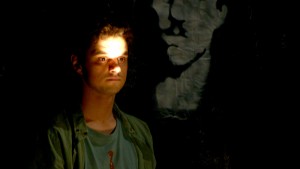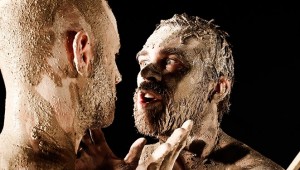You can’t suffer
from acute pain forever
A reflection on Terrorism(s)

The TERRORisms festival has gathered everyone who finds it hard to talk about ‘terrorisms’ both literally and figuratively. “Terrorisms” are themes one is afraid to touch even among their closest friends, “terrorisms” are all about controversy on the state level where the truth and lies are so elaborately minced and mixed that you can’t tell one from the other. “Terrorisms” are about getting off at the wrong stop just because you didn’t like the look someone gave you.
You can’t suffer from acute pain forever. Over time, pain is reduced to mere figures and dry facts. TERRORisms pumps fresh blood into the questions tattered from too much repetition. The most agonizing questions are always driven out into the realm of the subconscious. This process may occur within an individual as well as within a whole state. Memories lose their verbal shape since words lie too often. Maybe for this very reason, in the majority of festival performances text plays a secondary part. Similar to a dream, art brings back powerful imagery with renewed energy and unprecedented coolness of judgment. Five stage productions presented at the festival slap the audience in the face, tickle their ribs, shove a fist into their chests.
As Hans-Thies Lehmann wrote in his book “Postdramatisches Theater”, “It is not through the direct thematization of the political that theatre becomes political but through the implicit substance and critical value of its mode of representation.” The TERRORisms performances tap into terrorism both explicitly and implicitly
A hilarious show staged by Ludovic Lagarde’s French company (which, however, gives you goose bumps every now and then), and a philosophically witty production by the Danish/Norwegian director Jonas C. Petersen (who would have thought that English and Norwegian sense of humour à la “stiff upper lip” can be so close?!) are in contrast with the both romantic and realistic work by Iva Milošević from Serbia and Armin Petras’ interpretation of the world in the grip of nuclear apocalypse. In all these productions a person is crushed by circumstances and grinded by their time.
Shay Pitowsky’s production God Waits at the Station looks terrorism directly in the eye. The face of terrorism is distorted with grief. A gap in the two heroines’ cultural codes seems to be bridged on the level of interpersonal relations; however it doesn’t stand the test of loss. God Waits at the Station is about the burden being too hard to bear on the shoulders of a common person.
Techniques commonly deployed in documentary theatre give the show a specific pace. The bomb is already ticking and the memories gather before it goes off. God Waits at the Station makes the audience start their own internal investigation.
The productions at the TERRORisms festival break the lulling hum of TV-sets, of the whole media world modern society is used to live in, disrupting the common logic inherent in the audience’s minds. Creating a festival that has to deal with such complex issues one can easily try to hide behind a net of restrictions, to protect oneself against the consequences of straight-from-the-shoulder remarks and hardline views. Luckily, this is not the case. Theatre has found the only way out existing within it and beyond. It placed a person in the centre of each story, a person with their own passions and sorrows.
Law proclaims order, terrorism proclaims disorder and chaos; theatre goes beyond the limits of the ordinary not to instigate chaos but to reveal black-and-white shortsightedness of both law and terrorism. Interestingly, all three of them — theatre, law and chaos — claim power. They want to dominate our hearts, instincts and minds. However, if there should be one to rule, let it be theatre.
Published on 3 December 2015 (Article originally written in Russian)


